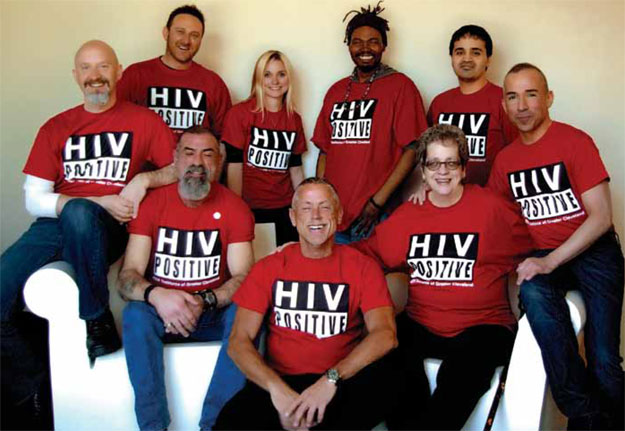Lesson 8: Social Status and Role
Attention

These individuals have decided to wear a symbol to declare a very challenging status...being HIV Positive!
Different statuses have different values in our society...and sometimes we wear our status symbols BOLDLY and other times we want to hide them! This says something about INEQUALITY and VALUES in all societies!
Learning Outcomes
Upon completion of this lesson's material, students will be able to:
- Identify the diversity of statuses and roles that they play in life
- Describe how ascribed vs. achieved status impact value systems
- Explore personal instances of role conflict and role strain
Teaching
We are all part of social groups (including society as a very large group)...and within those groups we have multiple status and roles.
Status
For this course, we can consider that "status" is like the job title that we have. We have multiple statuses based on all the job titles that we have. For me, here is a short list:
- Father
- Friend
- Racquetball partner
- Teacher
- Department Chair
- Male
- Brother
- Son
Role
For this course, role is the "job description" that goes along with each status that we have. We are evaluated by our groups as to how well we perform the "job description (role) that goes along with each status (job title) that we have.
Ascribed vs. Achieved
SOME of our statuses were forced upon us...we were born with them or circumstances were such that we found ourselves there. These would be "ascribed" statuses. Some of mine include:
- Son
- Male
- Canadian/American
- Short
- White
Other statuses are "earned"...or "achieved"...for me some of these would be:
- Husband
- Professor
- College Graduate
- Racquetball Player
Status Symbols
Consider the concept of a "status symbol"...how do we see material culture as an indicator of status in our society?

What does having a car like this mean as a "status symbol"? What statuses might we associate with this car?
Ascribed and Achieved Status and Disability
Sometimes our values associated with disability have to do more with our perceptions as to if they were "ascribed" or "achieved". Ascribed disability is often viewed in a more positive light than achieved disability.
Thus, "cancer" is often looked at as "ascribed" (even though lifestyle choices such as stress and smoking can lead to cancer) and receives lots of positive social support.
Herpes is often looked at as "achieved" (though one can unknowingly contact someone with herpes and get it) and receives significantly less positive social support.
Compare the page describing the National Institute of Health's efforts for HERPES vs CANCER...which one do you think receives more funding! (Keep in mind that Herpes effects approximately 50% of the population of the US).
Consider how this might impact our perceptions of mental illness.
Role Strain and Conflict
When we have multiple statuses we can often have competing roles. For instance:
- I am both a Department Chair and a Husband
- My work can be very time consuming and this can cause a strain between these two statuses
- I want to give time to my WORK, but I also want to give time to support my RELATIONSHIP
Our ability to manage Role Strain and Role Conflict plays a major role in our "success".
Assessment
Possible Class Discussion
In this discussion you will share your own experiences with status and role as they play out in your multiple groups and environments.
Lesson 8 Quiz
- Identify and describe a role conflict/strain that you are experiencing right now. Be sure to describe each status/role individually and then be specific as to how these are in conflict with one another.